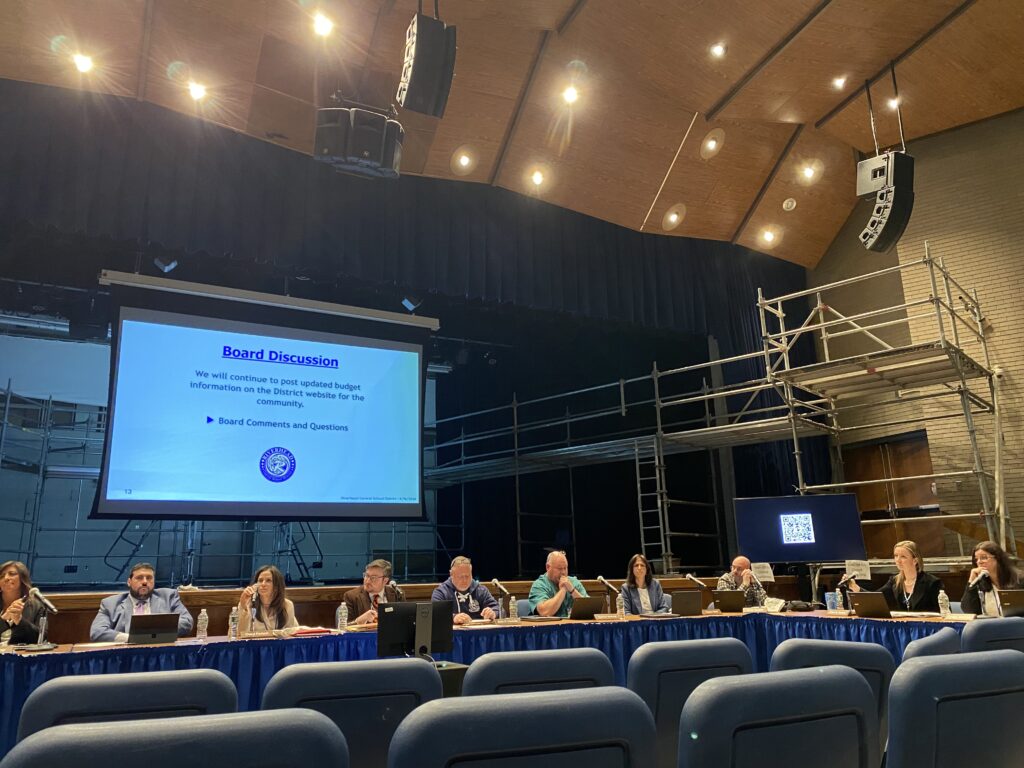Baiting Hollow Farm Vineyard’s proposal stalls before Planning Board in split vote

Baiting Hollow Farm Vineyard’s proposal to construct a barn-style wine tasting pavilion was neither approved nor denied at Thursday’s Riverhead Town Planning Board meeting.
Instead, board member George Nunnaro abstained, while the other four board members were split at two votes for and two votes against the preliminary site approval.
In October, the board voted 3-2 against the proposal. In January, it come up again for discussion, since a member of the board, Stan Carey, had been replaced.
The vote Thursday was in part based on a resolution submitted by the town Planning Department, which included some conditions that the applicant objected to.
Board members Ed Densieski and Richard O’Dea voted no, and Joann Waski and Joe Baier voted yes. Mr. Nunnaro did not indicate why he abstained; he had voted in favor of the expansion in October.
One new clause stated that the Planning Board had received numerous letters, emails and other correspondence from neighboring residents in opposition to the proposed project, citing objections to noise levels and traffic levels generated at the proposed site.
Other clauses added to the proposal states that “processing, marketing, and sale of wines produced on the farm is accessory to the principal agricultural production on the subject property. The property must maintain enrollment in a Suffolk County Agricultural District, and maintain its Agricultural Tax Exemptions. If at any time agricultural production ceases to take place on the subject property, the tasting room use and any other accessory uses shall no longer be permitted.”
The resolution also prohibited the playing of music outside the building, either live or amplified; that a tasting room be open no later than 9 p.m.; that a proposed 2,500-square-foot farm equipment barn be used only for storage of farm equipment; and that water service to the proposed farm equipment building be limited for the cleaning and maintenance of farm equipment.
The planning department resolution also required that the proposed sanitary system to the farm equipment barn be removed.
Sean Kelly, the owner of Baiting Hollow Farm Vineyard, took exception to several of the requirements in the Planning Department resolution.
“At the vineyard and in the farm equipment building, there are employees. They work all hours of the day and from time to time, they have to go to the bathroom,” he said. They currently have a port-o-potty, he said.
Mr. Kelly, an attorney, said farm equipment buildings don’t even require Planning Board approval under the state Agriculture and Markets law.
He also opposed a condition requiring the tasting room and other activities open to the public to close by 9 p.m. He said the town removed language from a prior version of the resolution which said that the state law encourages weddings and events held at farms help to market the farm’s product.
“So are we now prohibiting weddings at the vineyard?” he asked.
He said there are two other vineyards on Sound Avenue, RGNY and Palmer Vineyard, and they have weddings.
Another condition Mr. Kelly opposed was playing of music outside the building either live or with speakers.
Meanwhile, the Riverhead Town Board’s agenda last Tuesday indicated that the board had received 24 letters concerning Baiting Hollow Farm Vineyard. Three other letters dealt with designating Sound Avenue as a scenic and historic corridor.
The majority of the letters opposed the vineyard’s proposal.
“Sound Avenue was designated as a historic corridor for good reason,” wrote Gino Farina. “We’re counting on you to preserve it.”








